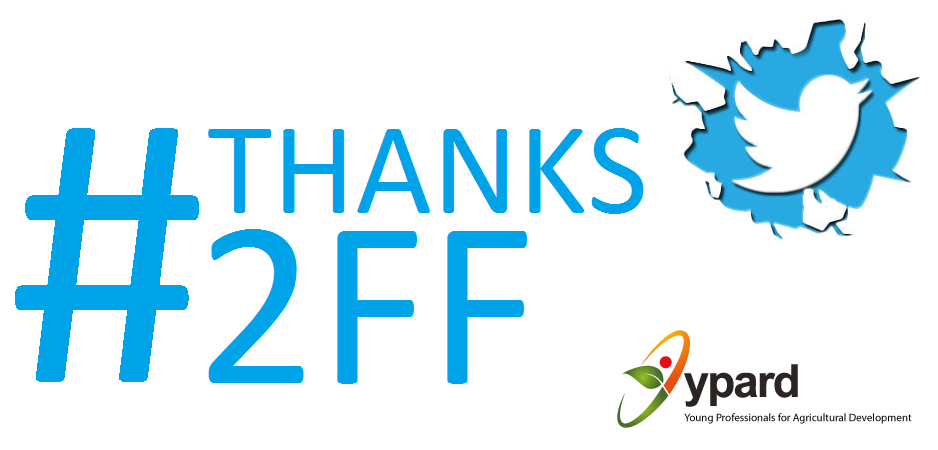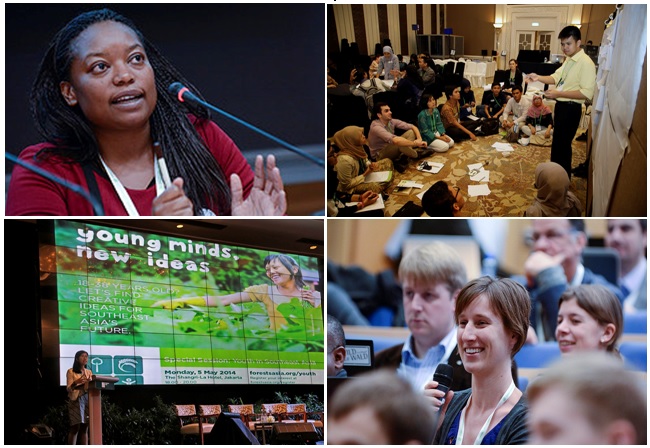
The World Food Day is celebrated every year around the world, on the 16th of October, in honor of the date of the founding of the Food and Agriculture Organization of the United Nations in 1945.

The World Food Day is celebrated every year around the world, on the 16th of October, in honor of the date of the founding of the Food and Agriculture Organization of the United Nations in 1945.
 From 22 September to 6 October 2014, you are invited to share your experience and opinions about how effective communication and community media really are in rural areas, and to discuss with the guest subject matter experts the success and challenges in the use of ICTs and communication tools and services by family farmers during the e-Agriculture Forum “Communication for Development, community media and ICTs for family farming and rural development”.
From 22 September to 6 October 2014, you are invited to share your experience and opinions about how effective communication and community media really are in rural areas, and to discuss with the guest subject matter experts the success and challenges in the use of ICTs and communication tools and services by family farmers during the e-Agriculture Forum “Communication for Development, community media and ICTs for family farming and rural development”.
From 16th April to 7th May 2014, the Technical Centre or Agricultural and Rural Cooperation (CTA), in collaboration with the African Youth Foundation (AYF) organised an e-debate on “Enhancing Young Women’s engagement in ICT and Agriculture” to celebrate the International Girls in ICT Day.
The objectives of the e-debate were to:
We are pleased to announce that the registration for attending the Sharefair: Inspiring Agricultural Change 15-17th October is now open.
It is vital that you pre-register for this event so that you will gain access to the UN compound in Nairobi on the day(s) of the event. Please make sure to register for every day that you will be attending.
We are happy to invite you to the new online discussion on The Future of Family Farming: Providing Resources for Women and Young Farmers
The 2014 International Year of Family Farming (IYFF) focuses attention on the role of family farming in eradicating hunger and poverty and aims at identifying policies and interventions to support family farmers.
In this guest post, Stephanie Brittain of Agriculture for Impact outlines the need to encourage more young Africans to study the agricultural sciences, as a route to a food secure and prosperous continent.
In 2012, sub-Saharan African countries’ food import bill reached US$37.7 billion. Turning Africa into a food producer rather than food importer will depend on many things: reenergizing African soil that is highly degraded, improving the flow of resources to smallholder farmers, and finding jobs for Africa’s ballooning young population.
 YPARD is the newest supporter of Farming First.
YPARD is the newest supporter of Farming First.
This official partnership comes as a continuity of an ongoing collaboration. Since last May, Farming First and YPARD implemented a monthly youth blog series to invite Young professionals' perspectives on key agricultural topics.
Many of us are quick to criticise decision makers about the choices they make related to river basin development. This stems from the fact that only a select few are able to participate in high level decision making processes. Enter the Basin Challenge Game which was designed to provide a platform that allows anyone to experience what river basin development truly means.
The game, which can be played with one player or in two-player mode with teams, gives participants a three billion dollar budget to develop a river basin over a period of 50 years. There are many choices available to players including: the building of hydropower dams, the development of agriculture and livestock such as vegetables or beef and the protection of national parks. As players progress through their turns, they instantly visualise the long and short term benefits and costs of their decisions across the spheres of water, energy, food, population growth, tourism and environmental development.
 Are you:
Are you:
You are just the kind of person we are looking for to lead dynamic, action-oriented roundtable discussions or pitch innovative ideas to an expert panel at the 2014 Global Landscapes Forum.
第 57 页 共 110 页